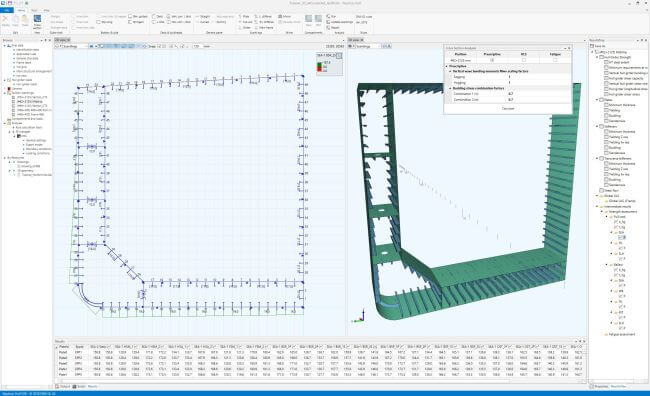
DP World Reports Record Volume of 70 Million TEU and 10.1% Volume Growth in 2017
February 6, 2018
UKHO Returns To The British Virgin Islands To Conduct Seabed Mapping
February 6, 2018
DNV GL’s Nauticus Hull software has been given a major upgrade to provide improved support for the new DNV GL rules and IACS requirements. The software covers DNV GL rules for classification of ships and IACS Common Structural Rules for Bulk Carriers and Oil Tankers with capabilities ranging from simplified rule-check and scantling calculations to advanced tools for finite element structural analysis.
“We are very pleased to see Nauticus Hull V20 go live,” says Geir Dugstad, Director of Classification at DNV GL – Maritime. “With this new version we have a very efficient rule calculation tool on the market. Nauticus Hull V20 enables increased approval efficiency, quality and superior design support, and is another big step in making the DNV GL rules the industry’s preferred standard.”

Image Credits: dnvgl.com
With new ship rules and IACS requirements increasing the scope of hull design, efficient rule calculation tools are essential in the design development for documentation of rule compliance. Nauticus Hull Version 20 has a new modern user interface with powerful modelling and rule check capabilities. The hull scantling design program “Section Scantlings” has been completely renewed with modelling, analysis and result viewer integrated into one user environment. In addition, new functionality for prescriptive cross section calculations has been added – including bow impact, ice class, and connection area requirements.
The new version has been developed in cooperation with major shipyards and ship design companies to gain a better understanding of user requirements. This has allowed DNV GL to work with designers and approval engineers to smooth out any barriers to efficient use of the tool. Over the next development cycle DNV GL will continue to expand the software’s functionality and streamline work process for the different ship types.
Nauticus Hull V20 is available now to all customers with a valid support agreement. Training courses are offered worldwide to bring users up to speed on the latest software features.
Reference: dnvgl.com
Source: Maritime Shipping News


